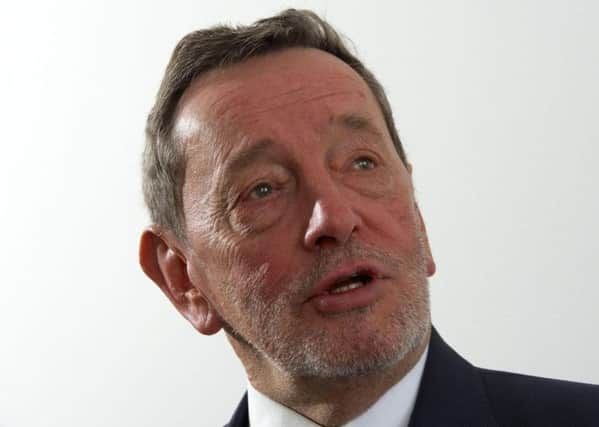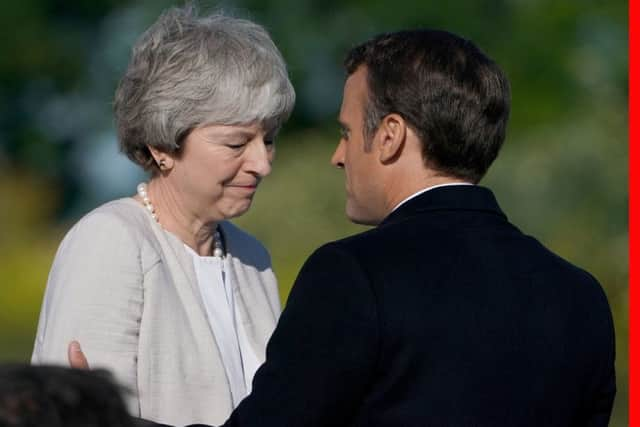Prime Ministers I know as unifying leader needed to heal nation’s divisions – David Blunkett


We also celebrated the 75th anniversary of D-Day. It was also my birthday and the Peterborough by-election. My message to Jeremy Corbyn is to avoid complacency on the back of the by-election win while the Tories should not swing even further to the right.
Advertisement
Hide AdAdvertisement
Hide AdAnd, as Theresa May formally stepped down as Conservative leader, it has caused me to reflect on the Prime Ministers that I have met from Harold Wilson in the 60s through to the present day.


Some had a long-term vision. Margaret Thatcher and Tony Blair had very contrasting views of Britain’s place in the world, the nature of government and how to cope with globalisation.
Harold Wilson had a clear idea as to how to manoeuvre, persuade and manage the compromises of running a party which, in itself, was a coalition. Some were unlucky. Gordon Brown entered Number 10 just before the global meltdown while Jim Callaghan faced the trade union movement which had pressed the self-destruct button.
Advertisement
Hide AdAdvertisement
Hide AdQuite often political parties go for a complete contrast to the previous incumbent. At the time of writing, because anything is possible, there are 11 candidates seeking to replace Theresa May. Or at least there are some seeking to replace her – and some who just want to ensure that nobody’s forgotten who they are!
In the 1950s, the Conservative Party had 2.5 million members. That genuinely could be considered by any polling expert to be relevant and a representative sample. Now, by all accounts, that electorate is around 100,000, not so representative.
As I’ve already revealed, this week was my birthday. I am, as they say, a Septuagenarian. In that sense, I fit the profile of your typical Conservative member very well – however, only in that respect!
It isn’t the colour of the hair, or the pleasure of subsidised public transport, winter fuel allowances and the like, that distinguishes these men and women. Rather, it is where they live, how they live and their views on how other people should live, which stands out.
Advertisement
Hide AdAdvertisement
Hide AdAll the evidence from detailed polling of these three issues throws up a selectorate for the next Prime Minister that is deeply unrepresentative of the British nation. Where you live, or where you spend the bulk of your time, really does have an impact on how you feel and think. This is one of the reasons why I made such a massive effort to be back in Sheffield every weekend, including when I was Home Secretary.
Caught as you can be in the bubble of Westminster, in the metropolitan heartland of liberal England, you could soon lose touch, not only with your electors but with your inner soul. For the Conservative selectorate, the opposite problem exists.
Secondly, how you live is equally as important. It is difficult but not necessarily impossible for people with a particular level of income, benefiting from the rising prosperity following the Second World War, to understand the changes, good and bad, that are taking place in the world around them.
However, if you live in the South East, with a decent pension, the world looks very different to growing up in a northern town with the prospect of the minimum wage.
Advertisement
Hide AdAdvertisement
Hide AdBut it is the third of the key indicators that seems to me to matter most. A political party that represents nostalgia, a yearning for a long past England, a mythical time when things were very different, is unlikely to have a vision for the future that will capture the electorate in years to come. I should know because I belong to a party whose leadership is currently caught in a time warp.
However, the difference between the Conservatives and Labour is in the profile of its members with Labour’s membership representing the future; young people who understand the enormity of social change and embrace it. They feel the pain which austerity has brought, and long for something better.
A political party that does not reflect this is bound, in the long term, to run into the sand.
That is why the selectorate, who will vote between the two candidates for our next Prime Minister, need to think very seriously.
Advertisement
Hide AdAdvertisement
Hide AdDo they vote for someone who can counterweight the challenge of Nigel Farage and the nightmare issue of Brexit or do they select someone who can win an election?
The major issues of the future will, of course, be our place in Europe and the world, but it will also appear be about an ageing population, the development of artificial intelligence, counterweighting the power of the big international companies and, of course, trying to narrow the North-South divide.
We are in every sense a divided nation – wouldn’t it be wonderful if we had a Prime Minister who could heal some of those divisions, and evoke a common purpose around which, no matter how temporarily, we could unite?
David Blunkett is a Labour peer. A former Sheffield MP, he was Home Secretary from 2001-04.